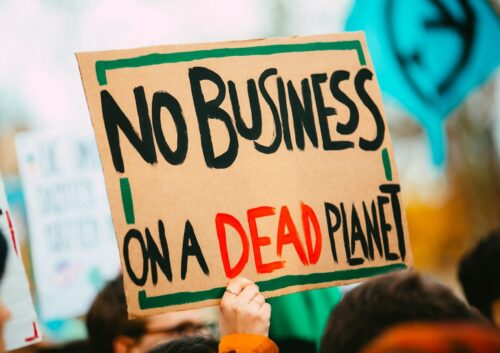
Republican-led states and business groups argued in federal court Friday that the Environmental Protection Agency [EPA] rule requiring power plants to reduce emissions by using carbon capture technology is unachievable. [emphasis, links added]
An appellate panel in the U.S. Court of Appeals for the District of Columbia Circuit heard oral arguments in the case West Virginia v. EPA.
The lawsuit against the Biden EPA power plant rules, finalized in April, was brought by a group of GOP states, led by West Virginia, and various industry groups.
The rule requires new and existing power plants that plan to operate past 2039 to reduce 90% of their carbon pollution by 2032.
To meet the EPA’s standards, power plants must install carbon capture and sequestration/storage technology.
But petitioners argued to the court that no power plant anywhere has successfully implemented carbon capture technology for 90% of a facility’s annual CO2 emissions.
“EPA cannot name a single facility that has ever accomplished this rule’s mandate of a system of facility-wide annual 90% carbon capture,” the petitioners’ lawyer, Scott Keller, said.
He argued that the EPA has to be able to show that its systemwide annual 90% CCS system has been demonstrated somewhere.
“We are trying to get better at carbon capture. We’re trying to address that problem, but we’re also trying to provide reliable electricity for the nation,” Keller concluded.
EPA attorney Chloe Kolman said the agency acted reasonably as it relied on “extensive, direct and corroborating evidence” that this emission reduction has been demonstrated.
Kolman used the Petra Nova project in Texas, which uses CCS to reduce carbon emissions from a coal-fired power plant, as an example.
But Judge Neomi Rao raised the petitioner’s argument that Petra Nova uses “slipstream carbon capture,” which means it only captures a small portion of the gas emitted from a coal-fired power plant and has yet to build a complete exhaust system.
Kolman said the industry has yet to build a complete exhaust system because there is no regulatory or financial incentive.
The “Petra Nova slipstream had the same properties as [a] full exhaust stream,” she said.
Kolman concluded that the EPA’s determination that 90% of CCS will be technologically sound and installed by 2032 is within the Clean Air Act.
Top photo of Petro Nova under construction.
Read rest at Washington Examiner



















Banning CO2 would be and is a totally stupid idea based upon Junk Science an Politics not reality
As usual, the fundamental argument, that carbon dioxide causes negligible warming and is beneficial to the world’s ecosystems, and agriculture, is ignored. Accepting the false premise that CO2 is a pollutant is a guaranteed loser for anyone trying to argue these cases on the merits.